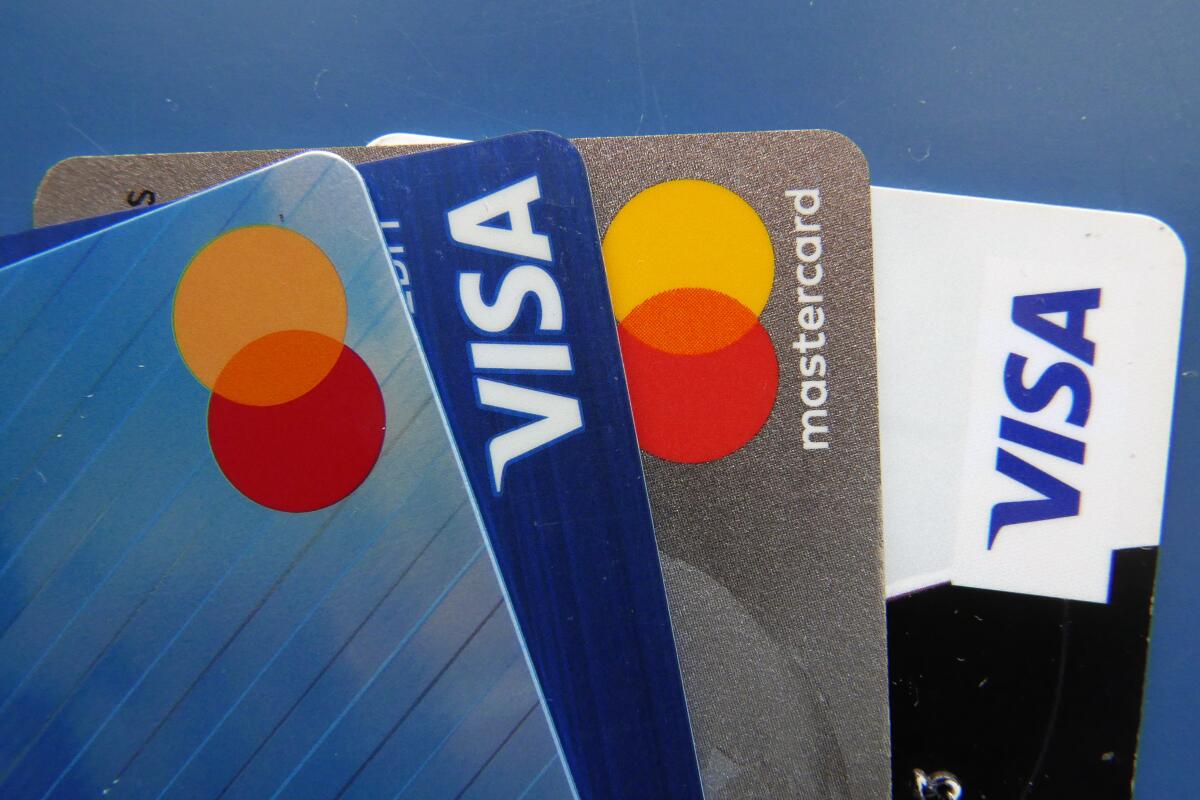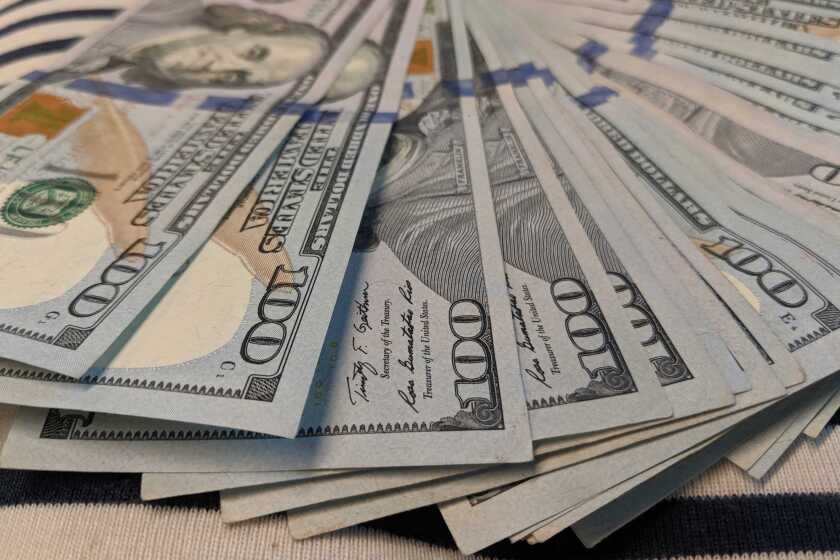How a new credit card can help your credit score

Dear Liz: I’ve received a notice stating that a retail credit card I’ve had for more than a decade will be converted to a Mastercard. I already have an American Express charge card and a Visa rewards credit card. I don’t need another credit card. But I’m concerned. Will the conversion hurt my credit scores? Or is having a credit card versus a retail card better for my credit scores?
Answer: Congratulations! Such conversions indicate you’ve been using the card and your other credit accounts responsibly. If you continue to do so, the new credit card could help your credit scores more than the retail card.
Although getting new plastic is both good and bad for your credit score, a credit card is typically factored into more FICO scoring variables than a retail card, said Ethan Dornhelm, FICO’s vice president of scores and predictive analytics.
“So to the extent that you have positive behaviors, it’s more likely to have a broader positive impact,” Dornhelm said.
The flip side is that if you mess up by missing a payment or running up big balances, those mistakes could have a greater effect on your scores, Dornhelm said.
Closing the account probably would be one of those mistakes, since closures reduce your available credit and in general should be avoided unless there’s a compelling reason, such as a too-high annual fee. The benefits that came with the retail card, such as discounts and free shipping, probably will transfer to the credit card, so you can continue to benefit from the account without worrying that it will hurt your scores.
In California, you can’t be sued for consumer debt older than four years. But making even a partial payment can restart the debt clock.
Did this child get ripped off?
Dear Liz: My niece’s father remarried when she was a child. Her father and her stepmother bought a house as community property in California. Ten years later, her father died. Not long after that, her stepmother died. The stepmother had no children, and my niece was the only child of her father’s. The stepmother’s niece took the house and sold it, and kept all the proceeds. Was my niece entitled to any of the proceeds?
Answer: Your niece needs to consult an experienced attorney, because the answer depends on a number of factors.
Estate planning attorney Jennifer Sawday of Long Beach points to California Probate Code Section 6402.5, which could give your niece priority over other heirs for the property’s proceeds — but only if the facts line up. If the stepmother died no later than 15 years after the father, didn’t remarry, didn’t have children, didn’t put the home in a trust and didn’t make a will after the father died, then the California probate court could consider your niece an heir, Sawday says.
That’s a whole lot of ifs, and your niece will need expert advice to proceed.
Gasoline prices depend on global supply and demand, which has been out of whack since the pandemic started. California drivers pay a premium for special blends.
House sale implications for retiree
Dear Liz: I’m 67, divorced since 1992 and retired with a good government pension, a retirement investment fund, some stocks and cash savings. I plan to sell my home of 33 years soon for a hefty profit and buy a smaller home. I owe $100,000 on the mortgage. I worry about a significant increase in payments to Medicare and tax obligations to the IRS. What financial advice do you have for me? This is my first time selling and buying a property on my own.
Answer: Now would be a great time to consult a tax professional about your options. You can exempt as much as $250,000 of home sale profit, but gains beyond that would incur capital gains taxes and could increase your Medicare premiums.
The amount you owe on your mortgage doesn’t affect the tax you owe on a home sale, but other expenses might. For example, you may be able to reduce your taxable profit if you kept good records of the amounts spent on home improvements. What you spent on maintenance and repairs over the years won’t help, but any work that improved the value of your home may be added to what you paid for the home to increase your tax basis. This basis is what’s subtracted from the sale price to help determine your taxable profit. Certain expenses you incurred to buy your home, such as closing costs, and to sell it, such as real estate commissions, also can help reduce the taxable portion.
IRS Publication 523 goes into detail about how to calculate home sale profit, but an enrolled agent (you can get referrals from the National Assn. of Enrolled Agents) or a CPA could be extremely helpful in advising you about these calculations.
Liz Weston, Certified Financial Planner, is a personal finance columnist for NerdWallet. Questions may be sent to her at 3940 Laurel Canyon, No. 238, Studio City, CA 91604, or by using the “Contact” form at asklizweston.com.
More to Read
Inside the business of entertainment
The Wide Shot brings you news, analysis and insights on everything from streaming wars to production — and what it all means for the future.
You may occasionally receive promotional content from the Los Angeles Times.












